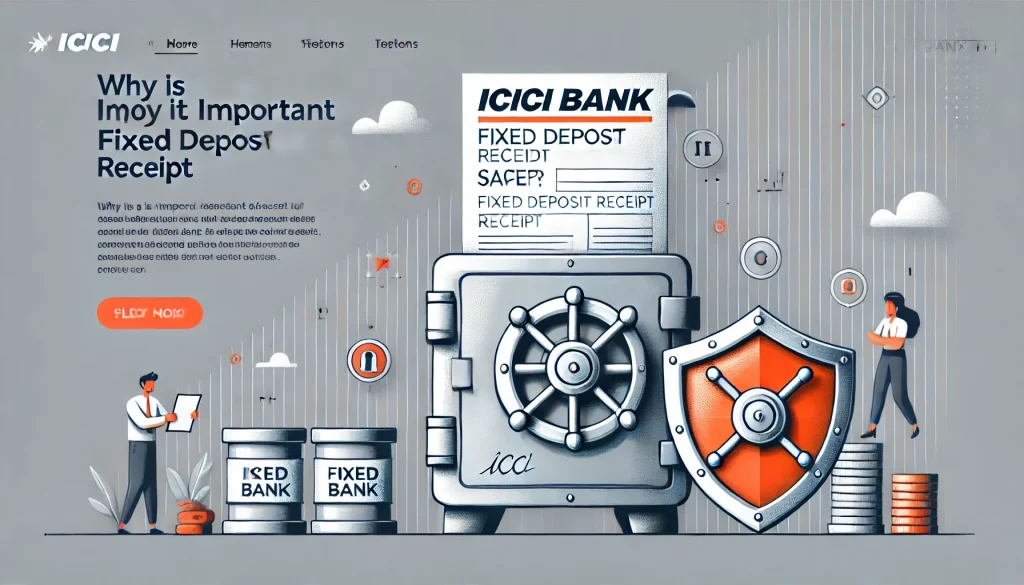
One of the oldest and most preferred investment schemes offered by the Indian Postal Service is the Post Office Fixed Deposit (FD) scheme, also known as the Post Office Time Deposit scheme. As India Post is fully operated by the Government of India, saving your hard-earned money with this institution is widely regarded as safe.
The Post Office FD interest rates 2025 are guaranteed and predetermined by India Post, providing a risk-free investment option for savers. The interest rate is fixed on the day you open your FD account, and you can choose from a variety of tenures that suit your needs. Additionally, while filing for an Income Tax Return, you can claim a deduction of up to ₹1.5 lakhs on the interest income under Section 80C of the Income Tax Act, 1961.
Now, we will discuss in detail the interest rates of Post Office FD, its eligibility criteria, the documents required and the types of schemes available.
| Minimum Deposit | ₹1000 (in multiples of 100 for general citizens and 1000 for senior citizens) |
| Maximum Deposit | No upper limit |
| Minimum Tenure | 1 year |
| Maximum Tenure | 5 years |
| Interest Rates | 6.90% – 8.20% |
| Lock-in Period | No lock-in period for the FD scheme |
| Senior Citizen | 8.20% |
| General Citizen | 6.90% – 7.50% |
Updated Post Office FD Interest Rates 2025
Here is the latest Post Office Interest table 2025:
| Tenure | Interest Rates 2025 |
|---|
Features and Benefits of Post Office FD Interest Rate 2025
If you plan to open a fixed deposit account with India Post, it is important for you to first know the features and advantages you can avail.
- The tenure for post office fixed deposits ranges from 1 to 5 years, offering a variety of investment durations.
- Depositors have the freedom to initiate multiple fixed deposit accounts within any of the post office branches, maximising their investment potential.
- Even minors aged 10 and above are permitted to establish and oversee these accounts. However, they must request an account ownership transfer upon turning 18.
- For account initiation, deposits made in cash or checks are both acceptable. The deposit date is the day a cheque is credited to the account.
- When a minor reaches the age of 18, their accounts can be transferred under their name, ensuring a smooth transition.
- At maturity, the fixed deposit is automatically renewed for the same duration as the initial term but with the prevailing post office fixed deposit interest rate.
- Non-resident Indian (NRI) depositors are not eligible to open fixed deposit accounts within Indian Post offices.
- Investors face no upper limit when it comes to the maximum deposit amount, granting them flexibility in their investment choices.
- A modest starting deposit of ₹200 is the threshold for opening a post office fixed deposit, making it accessible to different types of investors.
- Deposits held for 5 years qualify for tax benefits under section 80C of the Indian Income Tax Act, 1961.
- Joint accounts are an option for two adult account holders, and interchanging between single and joint accounts is allowed based on requirements.
- The ease of transferring post office fixed deposits between different post office branches enhances convenience and accessibility.
- Account holders can nominate beneficiaries when opening the account or even subsequently, offering added security and peace of mind.
How to Book Post Office FD?
You can book your FD with the Post Office using both online and offline methods. Here is a detailed discussion of how to do so using the respective methods.
1. How to Book Post Office FD Online?
The steps you need to follow to book your FD using the online method are:
- Step 1: Visit the e-banking portal of Indian Postal Services.
- Step 2: Log in to your account using the registered User ID and password.
- Step 3: Select the ‘Service Request’ option under the ‘General Services’ tab.
- Step 4: Keep following the directions presented to you on-screen and click on the ‘New Request’ option to book your Post Office Fixed Deposit.
2. How to Book Post Office FD Offline?
- Step 1: Visit their nearest India Post branch to obtain the requisite form to open an FD account.
- Step 2: The Post Office employee will provide you with the account opening application form. You will also be provided with a KYC (Know Your Customer) form if you are a new customer of the Post Office.
- Step 3: Fill in both forms with all the required details, and submit the same with the documents instructed to you.
Upon successful verification of your application, the Post Office employees will offer guidance concerning the next steps.
Documents Required to Book Post Office FD
When submitting your FD account application form, the Post Office requires you to submit certain documents. They are as stated below:
- KYC form (for modification of details or a new Post Office customer)
- PAN card
- Aadhaar Card
- Alternate documents for identity or address proof – Voter ID card, Passport, Job card issued by MNREGA and signed by an officer of the State Government, Driving licence, Letter issued by the National Population Register, having details of the name as well as the address
- In the case of a minor, proof of birth date or birth certificate
- KYC details of the legal guardian for the minor account
- KYC documents of all the account holders for a joint account
Eligibility to Open Post Office FD
The eligibility criteria to book a fixed deposit account with the Post Office are as follows:
- Type of Applicants: Indian residents
- Age of Applicants: 18 years or more. For senior citizen schemes, you have to be above the age of 60 years.
Types of Post Office FD Schemes in 2025
There are three types of fixed deposit schemes available with India Post. Post Office FD rates differ as per the types of schemes available and the period for which it is being booked.
Let us understand the types of FD schemes available with the Post Office.
1. National Savings Time Deposit Account
This fixed deposit scheme is a secure and safe investment option offered by India Post with guaranteed returns. The minimum deposit amount is low, with the availability of flexible tenure and no lock-in period, making it a flexible FD option for every individual. Post Office 1 year FD interest rate is 6.90%. The rate of interest increases as per the increase in tenure. Moreover, with this FD type, you get tax benefits under Section 80C of the Income Tax Act.
- Minimum Deposit: ₹1,000
- Maximum Deposit: No maximum limit
- Tenure: 1 year to 5 years
- Interest Rate: 6.90% to 7.50%
- Eligibility Criteria: Indian citizen
2. National Savings Monthly Income Account (MIS)
The National Savings Monthly Income Scheme (POMIS) is a small savings scheme India Post operates. It is a secure investment choice that guarantees investors a monthly income. The interest is paid out regularly, with the returns compounded yearly. Post Office FD interest for this scheme is fixed for the entire tenure. An easy withdrawal facility is available, and no tax is deducted on the interest earned in this FD.
- Minimum Deposit: ₹1000
- Maximum Deposit: ₹9 lahks for single account and ₹15 lakhs for joint account
- Tenure: 5 years
- Interest Rate: 7.40%
- Eligibility Criteria: Indian citizen
3. Senior Citizen Savings Scheme Account (SCSS)
The India Post offers Indian senior citizens this account type, which is a reliable and safe option to save money for a fixed period. Only individuals above 60 years of age can book this account. Post Office FD interest rate is fixed in this type and is paid every quarter from the deposit date. Moreover, the account holder can extend the period for 3 years from the maturity date by submitting a form to the Post Office.
- Minimum Deposit: ₹1000
- Maximum Deposit: ₹30 lakhs
- Tenure: 5 years
- Interest Rate: 8.20%
- Eligibility Criteria: Indian
Final Word
Overall, FD schemes provided by the Post Office are flexible in terms of deposit and tenure for every type of individual. Furthermore, the Post Office FD interest rate 2025 is quite attractive, allowing individuals to choose the tenure as per their needs. If you plan to book a fixed deposit, it is important for you to check all the offers, facilities and provisions of the scheme as per your financial suitability and goals.
Disclaimer
This article is solely for educational purposes. Stable Money doesn't take any responsibility for the information or claims made in the blog.


